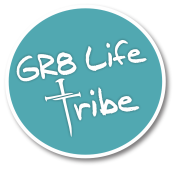MODULE 4
Connect with Others
Emotional health is a balance of intrapersonal and interpersonal connection. The relationship you have with yourself forms the foundation for other relationships, and supporting your own emotional health helps you connect with others in more meaningful ways.
The Power of Relationships
Have you heard the saying, “You’re the sum of the five people you spend the most time with”? Your emotions are influenced by those around you. Some relationships drain you, and some energize you. Sometimes you might not be sure why people affect you in certain ways. All you know is that you gravitate toward some people and away from others.
While relationships can offer many gifts, they can be difficult to navigate and maintain, especially given how our social environments shifted because of COVID-19. This is why it’s so important to put energy into them. Consider taking time to frequently tune in to how your connections feel as well as how they impact your overall quality of life. Each connection has something to teach you, and the more you reflect on what you’ve learned, the more fulfilling your current and future connections will be
Relationship Management
Interpersonal connections are bio-individual. Like a unique fingerprint, no two connections will be the same. Relationships also ebb and flow. For instance, you might notice more unhealthy habits and obstacles during higher-stress periods, while other times might feel healthier and easier overall. Every relationship has its own patterns and stages(this link opens in a new window/tab) , and every relationship requires invested energy.
During the course of a lifetime, you’ll have many types of relationships (partners, parents, children, friends, teachers, coworkers, neighbors, etc.) that continue to grow and evolve. Every relationship consists of two people with different life experiences and life views, which is why no relationship is without its challenges. However, some are more negatively impactful than others. For example, studies have shown(this link opens in a new window/tab) that people in toxic relationships are at a greater risk for experiencing health problems, such as strokes and heart attacks, than those who are in healthy relationships. These relationships also undoubtedly influence emotional health.
More than anything, continually tune in to how each relationship feels and how it’s impacting overall health and well-being. Look at the relationship and see how your feelings contribute to what’s happening, how you might be able to shift your mind-sets and habits, and how you can embody the relationship you want to have.
